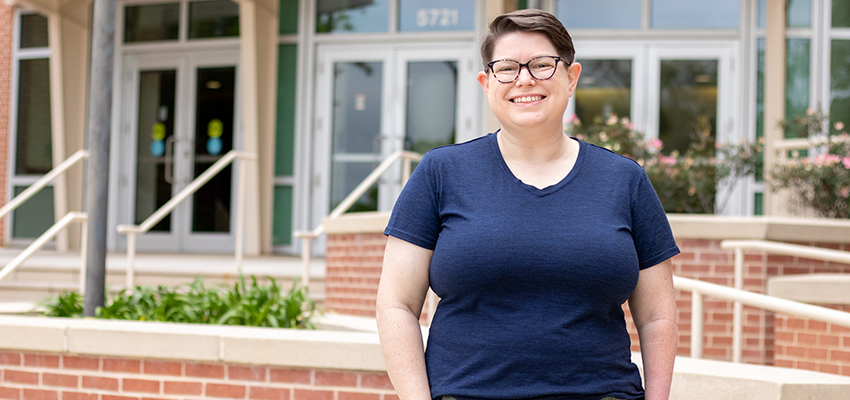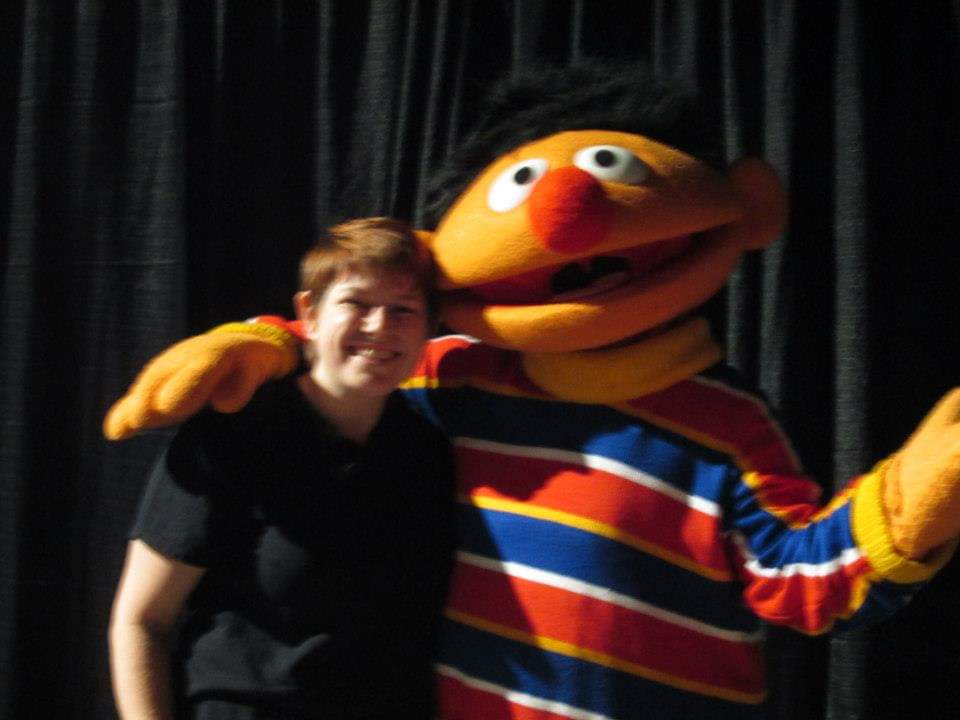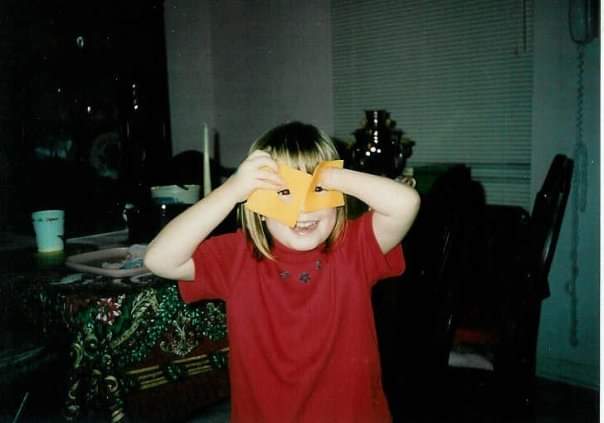A New Stage
Posted on May 22, 2024 by CAHP

From backstage to the classroom, occupational therapy student Lizzy Trawick, 35, is following her heart into a new career.
Before deciding to pursue a doctoral degree in occupational therapy at South, Trawick spent several years based in Atlanta, Georgia, working in theatre and nonprofit settings. She has a bachelor’s degree in technical theatre with an emphasis in costume design and production.
Like many others, the global pandemic in 2020 created moments of uncertainty and opportunity in Trawick’s life. One of those being the question of how to integrate her passions into her work. The extra time spent at home gave her the opportunity to explore new ways to make a difference in the lives of others.
Eventually, she discovered occupational therapy.
“I really connected with it because of not only its scientific component but also the creative side of it,” Trawick said. “Because each case is different and because each person has their own needs, you have to have that creativity to figure out what you can do to make sure that patients are able to do what they want to do.”
In order to apply for South’s program, Trawick had to complete several prerequisite courses and occupational therapy observation hours. She was able to complete everything she needed in four semesters.
Now she is a member of the University’s first cohort of occupational therapy doctoral students. The doctoral program launched in Fall 2023, and Trawick and her classmates are expected to graduate in May 2026.
It is not every day that someone more than 10 years removed from completing a bachelor’s degree decides to pursue a graduate degree in an entirely new field. However, it was not unfamiliar territory for Trawick. At the age of 50, her father chose to step back into the classroom and complete a doctorate in osteopathic medicine.
Her return to school has allowed Trawick and her father to bond over the new material she is learning about.
“I have loved being able to call him and tell him, ‘Hey, we learned about this really cool thing,’” Trawick shared. “And he’ll say, ‘Oh yeah. Did you know x, y and z about all of this?’”
Being in USA’s occupational therapy program has also allowed her to be closer to her grandmother who lives in Stapleton, Alabama. Though Trawick lives near campus, she always makes time for a trip across Mobile Bay to visit and help her grandmother with anything she needs.
Behind the Scenes

Trawick’s career in theatre provided unique opportunities including a four-month run touring with Sesame Street Live. During that time, she embraced the quick and unpredictable nature of working backstage. One minute she would be helping a cast member get in costume, but in a matter of seconds, one missed line could cut 30 seconds off the time she had to get the job done.
She always found a way to make it happen, even if that meant fastening the costume with safety pins instead of looping each button. Now she is applying her creative skills to occupational therapy.
“To put on a production requires adaptability. It requires improvisation,” Trawick said. “It requires using things you wouldn’t usually necessarily use normally to repair things.
“When you start looking at adaptive equipment and assistive technology, that stuff can be really expensive, and a lot of it is not covered by insurance. It is valuable to find ways to use things that you wouldn’t necessarily think of using to help adapt the world to people’s needs.”
As someone with an upper limb difference, Trawick is familiar with the necessity of adaptability. She was born with symbrachydactyly, a rare congenital hand difference where one of her hands did not fully form.
While she learns about new therapy techniques and interventions in class, she is occasionally having to adapt and create her own unique methods. The department’s faculty have been there to support and advise her every step of the way.
“All the professors are really great about being willing to work with me and offer suggestions,” Trawick said.
She and several of her classmates have quickly bonded over their passion for occupational therapy and are rooting for each other as they head into a new semester.
She also recently found a community of occupational therapists with upper limb differences on Instagram. The group’s focus is to raise awareness about upper limb differences and elevate the voices of fellow occupational therapists.
 “The more I learn about upper limb differences and the lack of knowledge and research,
not just in OT, but in general, the more I want to do stuff to help people, kids specifically,
with limb differences,” Trawick said. “I think it is so important that there is disability
representation in all fields, but especially fields like occupational therapy and
physical therapy because we do have that perspective that no one else has.”
“The more I learn about upper limb differences and the lack of knowledge and research,
not just in OT, but in general, the more I want to do stuff to help people, kids specifically,
with limb differences,” Trawick said. “I think it is so important that there is disability
representation in all fields, but especially fields like occupational therapy and
physical therapy because we do have that perspective that no one else has.”
Leading with Kindness
Trawick has always had a heart for others and is excited about the opportunity to make a difference in the lives of her future patients. For several years, she spent her time serving people who were experiencing homelessness in Atlanta and working on the community outreach team for a local animal shelter.
Currently, she is making a difference in the lives of her classmates by lending an empathetic ear, sharing a kind word when needed and using her baking skills to provide sweet treats throughout the semester.
“It’s incredibly important to use empathy and take a moment to consider how what you say is going to affect the people around you,” Trawick said.
Her go-to treats are chocolate chip cookies, but she really loves to make lemon bars. She even made a king cake for Mardi Gras.
This summer, she is looking forward to the Alabama Head Injury Foundation’s Bright Ideas Traumatic Brain Injury Camp that takes place at South each year. During the camp, allied health students from various programs will have the opportunity to work alongside the foundation as they provide new methods, strategies and technologies to help improve the quality of life of survivors and families dealing with life-altering injuries.
This will be her cohort’s first Level 1 fieldwork experience. Fieldwork is designed to strengthen the tie between the students’ academic and clinical educations. Students will complete Level 1 and Level 2 fieldwork throughout the eight-semester doctoral program.
Once she completes her degree, Trawick hopes to return to the Atlanta area to work at a local children’s hospital.
“The possibilities for occupational therapy are vast, and I think that it’s important to remember that whatever population you’re working with, to work with them,” Trawick shared. “It’s very easy to slip into a hierarchical mindset. The most crucial thing is collaboration with clients.”


